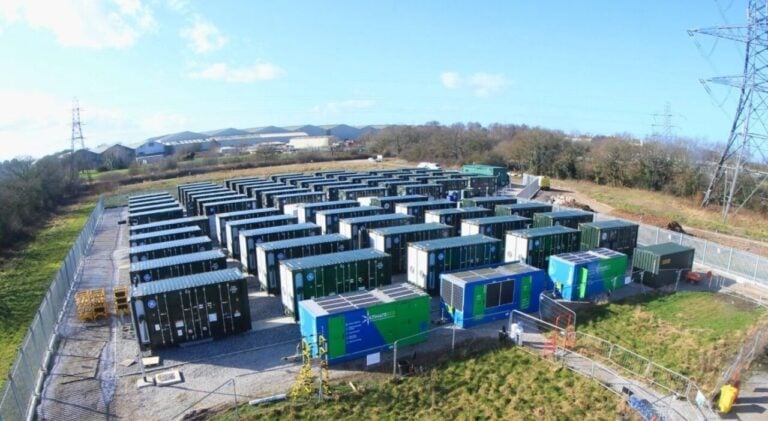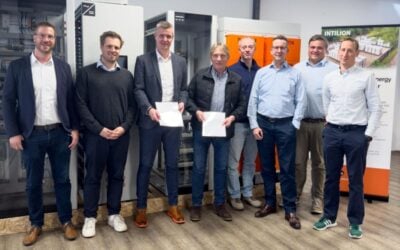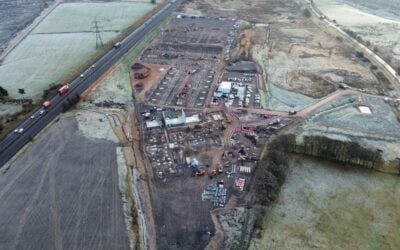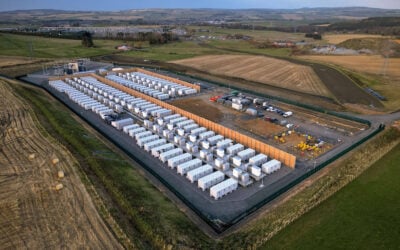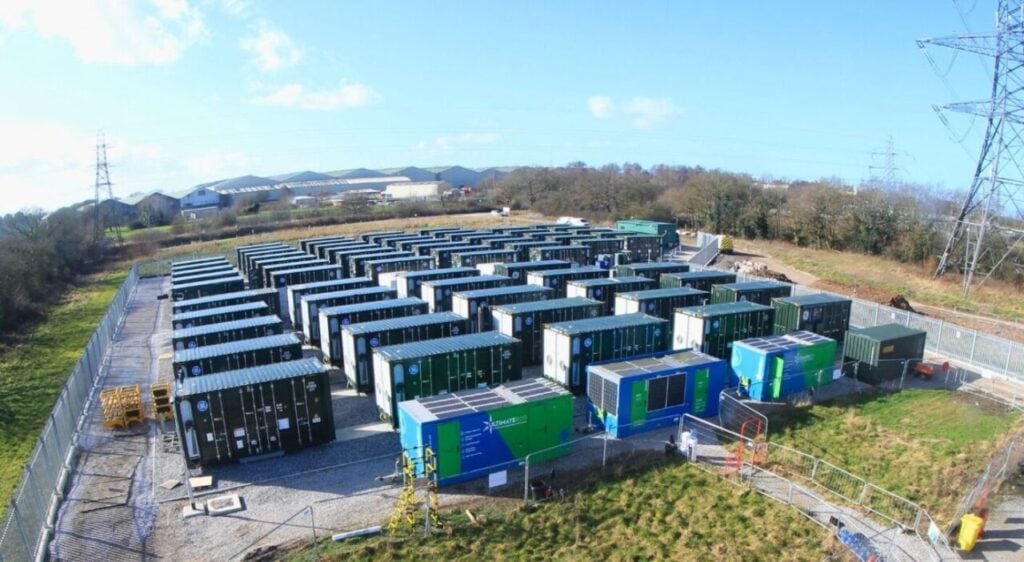
The pipeline of grid-scale BESS projects with planning approval in the UK has now reached 58,270MW/121,645MWh in capacity.
That’s according to the latest data from Solar Media Market Research’s ‘Battery Storage: UK Pipeline & Completed Assets Database’ report.
This article requires Premium SubscriptionBasic (FREE) Subscription
Enjoy 12 months of exclusive analysis
- Regular insight and analysis of the industry’s biggest developments
- In-depth interviews with the industry’s leading figures
- Annual digital subscription to the PV Tech Power journal
- Discounts on Solar Media’s portfolio of events, in-person and virtual
Or continue reading this article for free
A total of 1,420MW/2,840MWh of battery energy storage system (BESS) projects were awarded planning consent over the course of April 2025, the data shows, slightly less than the 1,590MW/3,179MWh that were approved the previous month.
Planning consent is not a guarantee of project deployment, but is a crucial step, particularly in light of the ongoing reshuffle of the grid connection queue, which will prioritise projects that have planning consent in place.
April was the busiest month of 2025 so far for planning applications, with 925MW/1,849MWh submitted, meaning a total of 31,168MW/63,640MWh is in the planning process. May is, however, being relatively slow on both planning applications and decisions relative to previous years.
Meanwhile, the only major grid-scale BESS project that came online during the month was the 57MW/138MWh Native River BESS, owned by Varco Energy, reported on by our sister site Solar Power Portal. That leaves the UK with 6,424MW/9,160MWh of operational grid-scale BESS capacity as of the start of May.
Ethical Power provided balance of plant (BOP) and independent connections provider (ICP) works for the project. Varco Energy meanwhile is funded by investor Adaptogen Capital, one of the signatories of an open letter recently signalling the short-duration BESS industry’s opposition to the UK government’s cap and floor support scheme for long-duration energy storage (LDES).
There remains around 7.6GW/17GWh of BESS under construction in the UK, roughly similar to previous months in 2025.
Solar Media Market Research analyst Charlotte Gisbourne wrote a piece for Energy-Storage.news last month about how the UK BESS market is regionally structured, and how this differs for projects that are online and in the pipeline.
Held alongside the Battery Show Expo Europe in Stuttgart, Energy Storage Germany spotlights Germany’s rapid ascent in the European storage sector. Once driven by residential demand, utility-scale projects are now surging, with 184 MW added across 44 projects in 2023. With nearly 16 GWh of capacity installed in the first half of 2024, Germany is set to integrate 24 GW of utility-scale energy storage by 2037, creating substantial opportunities.
NH Collection Vittorio Veneto, Rome, Italy
Across two packed days, the Summit focused on three core themes: revenue & trading, the lifecycle of the battery, and optimisation tools. Attendees explored innovative strategies for enhancing asset performance and longevity, with a spotlight on key markets like Germany, Italy, and the UK. Stay tuned for details on the 2025 edition of the Battery Asset Management Summit Europe, where we’ll continue to chart the path forward for energy storage asset management.
InterContinental London – The O2, London, UK
This isn’t just another summit – it’s our biggest and most exhilarating Summit yet! Picture this: immersive workshop spaces where ideas come to life, dedicated industry working groups igniting innovation, live podcasts sparking lively discussions, hard-hitting keynotes that will leave you inspired, and an abundance of networking opportunities that will take your connections to new heights!
Read Next
The growing complexity of managing battery-based assets requires top-level innovation you can trust, explains Abdelkrim Benamar, CEO of PowerUp.
UK power generation firm Drax will not bid its Cruachan II pumped hydro energy storage (PHES) project into the LDES cap and floor scheme, saying that costs have risen while ‘recoverability of capital’ is unclear.
System integrator Intilion will provide 81MWh of its BESS technology for a project in North-Rhine Westphalia, Germany.
Copenhagen Infrastructure Partners (CIP) will divest a 50% ownership stake in its 500MW Coalburn 1 BESS to alternative investor AXA IM Alts.

